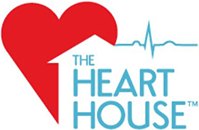High Cholesterol
What is High Cholesterol?
Cholesterol is a waxy, fat-like substance found in all your body's cells. It is essential for various bodily functions and is produced naturally by the liver, but it can also come from foods. Cholesterol does not dissolve in blood. It has to be transported within lipoproteins. When levels in the blood become too high, it leads to a condition called hyperlipidemia or hypercholesterolemia.
High cholesterol is often called a "silent killer" because it often has no symptoms. Over time, however, it can lead to atherosclerosis - a dangerous narrowing and stiffening of arterial walls. This can increase your risk of developing serious health problems, such as heart disease, stroke, and peripheral artery disease (PAD). There are two main types:
- Low-density lipoprotein (LDL) cholesterol
Known as "bad" cholesterol, LDL contributes to plaque buildup in arteries. - High-density lipoprotein (HDL) cholesterol
Called "good" cholesterol, HDL carries cholesterol from tissues to the liver for removal.
Causes and Symptoms of High Cholesterol
High cholesterol, a significant risk factor for heart disease and other cardiovascular conditions, can be influenced by a combination of genetic predisposition, lifestyle choices, and underlying health conditions. Recognizing the causes and understanding the potential symptoms of high cholesterol is pivotal for early detection and effective management.
Causes of High Cholesterol
- Diet
Eating a diet high in saturated and trans fats, found in fried foods, fatty meats, and commercially baked goods, can elevate LDL cholesterol levels. - Lack of physical activity
Sedentary lifestyles contribute to weight gain and negatively impact cholesterol levels. Regular exercise helps raise HDL (good) cholesterol and lower LDL (bad) cholesterol. - Obesity
Excess weight, especially around the waist, can increase LDL cholesterol and lower HDL cholesterol levels. - Genetics
Genetic factors can play a role in high cholesterol levels. Familial hypercholesterolemia is an inherited condition that leads to extremely high LDL cholesterol levels. - Age and gender
Cholesterol levels tend to rise with age. Men are more likely to have higher cholesterol levels than premenopausal women. After menopause, women's cholesterol levels tend to equalize with men's. - Diabetes
People with diabetes often have high LDL cholesterol and low HDL cholesterol levels, increasing their risk of heart disease.
Symptoms of High Cholesterol
High cholesterol itself typically does not manifest with noticeable symptoms. This is why it's often referred to as a "silent" condition. Individuals with high cholesterol may only realize their risk once they experience complications such as heart disease, stroke, or peripheral artery disease. These complications can cause symptoms such as:
- Chest pain or angina
Reduced blood flow due to cholesterol buildup in coronary arteries can lead to chest pain or discomfort during physical activity or stress. - Shortness of breath
Reduced blood flow to the heart can result in shortness of breath, especially during exertion. - Leg pain or weakness
Peripheral artery disease caused by cholesterol buildup in leg arteries can lead to leg pain, cramps, or weakness during physical activity. - Transient ischemic attack (TIA) or stroke
Cholesterol plaque in brain arteries can lead to a TIA or stroke, resulting in sudden numbness, confusion, severe headache, or trouble speaking.
Testing & Diagnosis for High Cholesterol
Testing and diagnosing high cholesterol is essential in understanding your cardiovascular health and taking proactive measures to mitigate associated risks. Regular cholesterol screening helps identify potential issues early, allowing for timely interventions and better management.
There are several tests that can be used to diagnose high cholesterol. The most common test is a blood test called a lipid profile.
- Lipid Profile
The most common test is a blood test used to diagnose high cholesterol, called a lipid profile. This test measures your LDL cholesterol, HDL cholesterol, and triglyceride levels. - Total Cholesterol
This measurement reflects the overall cholesterol content in your blood, combining both LDL and HDL cholesterol. A desirable level for total cholesterol is below 200 mg/dL. - LDL Cholesterol (Low-Density Lipoprotein)
Often referred to as "bad" cholesterol, elevated LDL cholesterol levels can contribute to plaque buildup in your arteries, increasing the risk of heart disease. A desirable level for LDL cholesterol is below 100 mg/dL. - HDL Cholesterol (High-Density Lipoprotein)
Considered "good" cholesterol, higher levels of HDL cholesterol are associated with a decreased risk of heart disease. HDL helps remove excess cholesterol from the bloodstream. A desirable level for HDL cholesterol is above 60 mg/dL. - Triglycerides
These are a type of fat that can circulate in your bloodstream. Elevated triglyceride levels are linked to an increased risk of heart disease. A desirable level for triglycerides is below 150 mg/dL. - Other tests
Your doctor may also order other tests, such as an electrocardiogram (EKG) or an echocardiogram. These tests can help to assess your risk of heart disease and other health problems.
Treatments for High Cholesterol
If you have high cholesterol, your doctor will work with you to develop a treatment plan. This may include lifestyle changes, such as eating a healthy diet, exercising regularly, and losing weight. In some cases, your doctor may also prescribe medication. Early detection and treatment can lower your cholesterol and reduce your risk of developing serious health problems.
If lifestyle changes are not enough to lower your cholesterol, your doctor may prescribe medication. There are several different types of cholesterol-lowering medications available, including:
- Statins
Statins are the most common type of cholesterol-lowering medication. They work by blocking the production of cholesterol in the liver. - Bile acid sequestrates
Bile acid sequestrates bind to bile acids in the intestine and prevent them from being absorbed. This lowers cholesterol levels by reducing the amount recycled back into the bloodstream. - Niacin
Niacin is a B vitamin that can help to lower cholesterol levels. It works by increasing the production of HDL cholesterol and decreasing the production of LDL cholesterol. - Fibrates
Fibrates help to lower triglycerides and raise HDL cholesterol. They are often prescribed in combination with statins or other cholesterol-lowering medications.
Photo Gallery
Video Gallery
Testimonials
Photo Gallery
Meet Your Cardiovascular Specialists
In Search of Care? Request a Consultation Today





